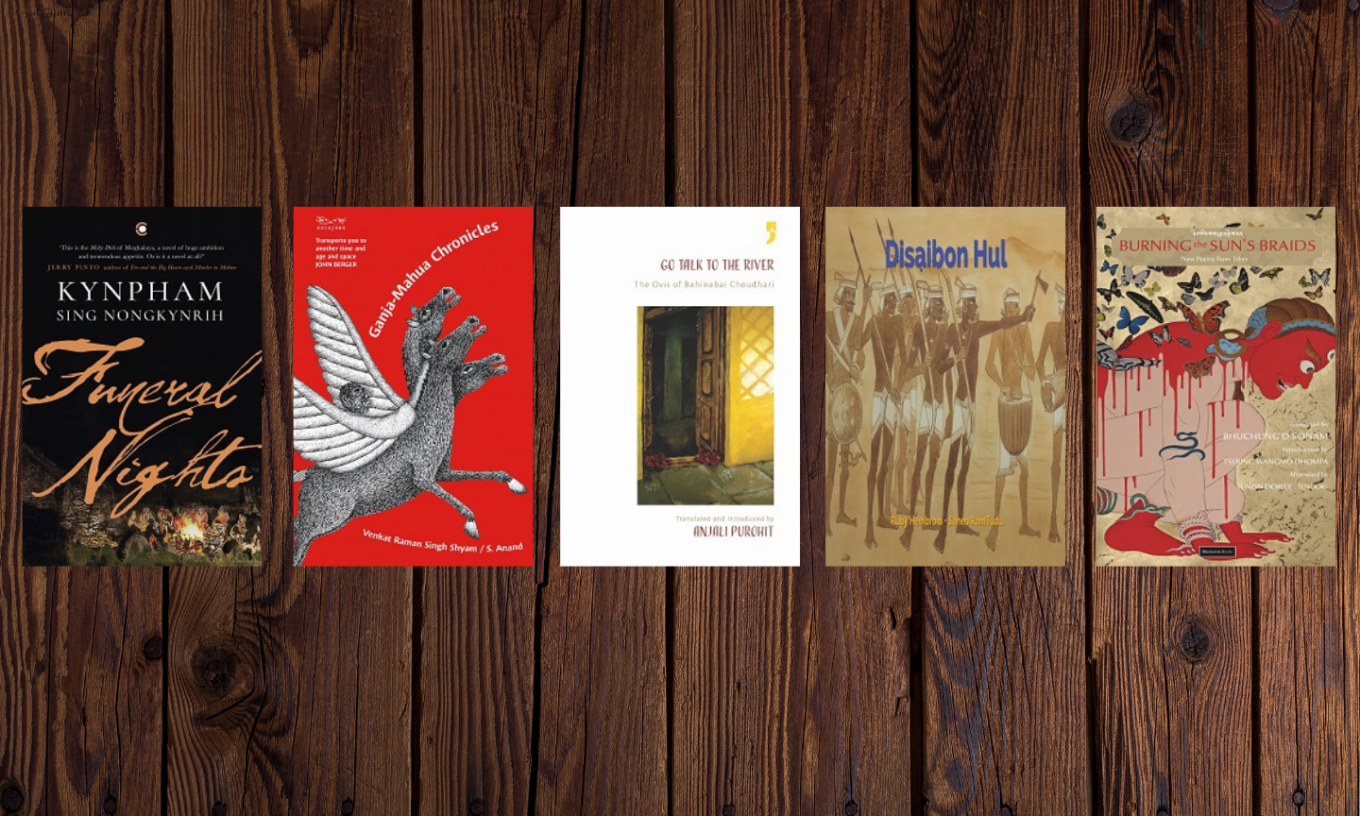
Funeral Nights by Kynpham Sing Nongkynrih
Context, India; 1024 pp; fiction
As the entire catalogue of Westland Books (with so many great titles) is about to vanish, I would urge every serious reader to pick up a copy of this book. This 1,024-page novel is a marvel of a book, an extraordinary achievement in Indian fiction, an epic of the Khasi Hills in Meghalaya. The novel centres around a unique six-day-long funeral ceremony of the Lyngngams, a Khasi sub-tribe, where the author interweaves a tapestry of life-affirming stories with an anthropologist’s eye for details. It harks back to the days when we would listen to our grandparents tell stories by the fire. I cannot recommend it enough.
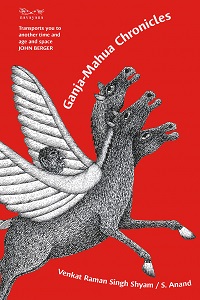
Ganja-Mahua Chronicles by Venkat Raman Singh Shyam and S Anand
Navayana, India; 176 pp; art and poetry
Purportedly an (auto)biography of ‘tribal’ artist Venkar, the book “charts an unexplored textual territory of narration”. Filled with art, poetry, and fragmented anecdotes, the book extends the vision of what personal narratives can be, and what they can achieve. And what a delight to be able to experience this.
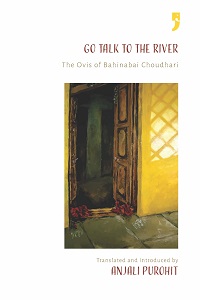
Go Talk to the River: The Ovis of Bahinabai Choudhari, translated by Anjali Purohit
Yoda Press, India; 316 pp; poetry
What Anjali Purohit has achieved here is monumental, life-changing. I want everybody to read this book. Ovis is a form of poetry that has been sung by women in Maharashtra for centuries, in a regional variant of Marathi called Ahirani, and Bahinabai Choudhari’s words not just speak of her experiences in her time, but transcend them. She will speak to you, of your experiences, if you listen closely.
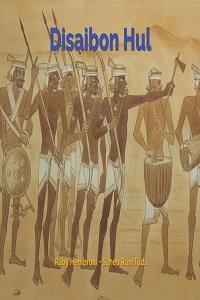
Disaibon Hul by Ruby Hembrom and Saheb Ram Tudu
Adivaani, India; 32 pp; non-fiction
This is an anti-coffee table book — so beautiful, so simple, so important. In short, it’s an illustrated book on the Santal Rebellion of 1855-57. But being published by an independent press focused on Adivasi concerns, each line, each illustration, each word in the book is a voice of protest. The publisher wanted the book to be a ‘Santal production’, and it decidedly is. A masterpiece.
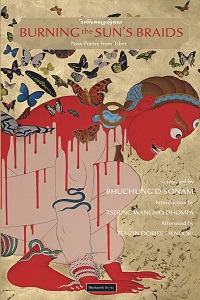
Burning the Sun’s Braids: New Poetry from Tibet translated by Bhuchung D Sonam
Blackneck Books, India; 205 pp; poetry
The book includes the works of 13 poets from Tibet in translation, a collection that offers a window to the on-going Tibetan struggle for freedom. In these poems, the past is not a sleeping graveyard, it provides the impetus for action. So, naturally, freedom, as a word and a concept, appears more than any other term in this collection. As Tsering Wangmo Dhompa writes in the introduction, the poems in his collection are heartbreaking, groundbreaking, and revolutionary; readers need courage.


